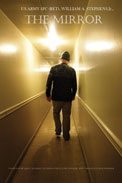
 |
The therapeutic nature of the written word is never more evident than in Stephens’s compilation of eye-opening poetry and short stories that is simultaneously a heartfelt plea to society for better understanding of post-traumatic stress and, in many ways, a handbook or guide map for military veterans to follow as they encounter similar challenges while attempting to adjust to civilian life. With a decorated military service career spanning twenty years, which included numerous commendation and achievement medals, the author transforms his knowledge and experiences into advocacy for the veteran.
Although Stephens’s insight caters best to the veteran, there is little doubt that his premise expands beyond, becoming a crucial text on mental health awareness, particularly post-traumatic stress disorder. Interestingly, the author’s candid writing, often accomplished in times of immense difficulty and even war, sheds light on a childhood devoid of the love and upbringing necessary for a developing youth. More specifically, he shares how his father’s name-calling and his family being viewed as “the Monsters” by those around him planted the seeds of post-traumatic stress, leading a nineteen-year-old Stephens to seek his own identity that commences with a deployment to Kuwait.
From the perspective of social commentary, there could not be a better time for a work like this to spark conversation about mental health. In one instance, the author reflects on how veterans who have lost a limb are provided with noticeably special treatment, while veterans who are physically intact, but whose minds may be completely ravaged by their experiences on the battlefield, are deemed fine. Unsurprisingly, articles on veteran care can be found in nearly all major newspapers, from the New York Times to the Washington Post. In one New York Times opinion piece, healthcare writer Suzanne Gordon cites former Speaker of the House John Boehner on the state of veteran affairs, specifically the VA Hospitals as saying they “provide substandard care to our veterans who deserve the best care.” Stephens himself voices the frustrations of PTSD and how it slowly strips away one’s life and spirit, holding them captive in the prison of the mind. In vivid detail, the author describes being unapproachable, punching walls until he could see blood from his knuckles, an image that will enlighten audiences regarding the helplessness of PTSD sufferers. Despite enrolling in the Warriors Transition Unit (WTU) post-military retirement, Stephens further depicts this feeling of resignation, stating, “I felt as though I was in a recycle center for soldiers, an old soldiers’ home.”
The darkness and void amid the sentiments of resignation are evident in the author’s short stories. Some stories like “The Secret Box” express initial hope, with Stephens collecting all of his visions, thoughts, and reflections in writing but which ultimately culminate in emptiness. Other snippets, including “A Special Rock,” show how even the most trivial discoveries, like a rock in the Saudi Arabian desert, hint at myriad themes. For example, readers will understand how a simple rock can keep soldiers grounded to reality. In these paragraphs, the author shares how this “souvenir” has endured with him through his multiple deployments and has been his loyal confidante throughout. Further, readers will get an in-depth glimpse of the inner turmoil, the storm within the soldier’s mind as one’s will clashes with circumstance. From the outsider perspective, it is remarkable to think that while civilians enjoy the fruits of the soldier’s labor—freedom—the soldier himself finds respite in a rock, an emblem of the trials and tribulations faced.
Through prose, Stephens provides readers with critical information. However, through his poetry, some of which were written from his stationed deployments in Kuwait, Saudi Arabia, and Iraq, he lends his eyes to audiences. In particular, poems like “Living on the Razor’s Edge” and “Dream Rider’s Last Ride” provide a lens through which readers can see and feel the chaos and frenetic nature of a veteran’s life. Perhaps the poems that resonate the strongest are those that ask the most difficult questions and those that can be applied universally. “Searching” and “What is My Purpose” tackle such questions about purpose, whether it is love, family, or career, with an almost haunting directness. Moreover, Stephens has a knack for using imagery and metaphor to evoke a particular emotion. “Lost” is one such example where the image of a balloon flying high in the sky, with no strings attached, seemingly represents the human spirit. When the balloon finally gets too high and inevitably pops, the poet seems to portray both the end of his military journey and the difficulty in fitting back into family life with his wife and daughter.
Overall, through narrative and poetry, Stephens not only shares his experiences of military and post-military life, but he also gets the ball rolling on conversations about mental health and post-traumatic stress disorder. Bringing these topics out into the open is imperative if society is going to take accountability and understand how to help military veterans get reacclimated to civilian life.
RECOMMENDED by the US Review